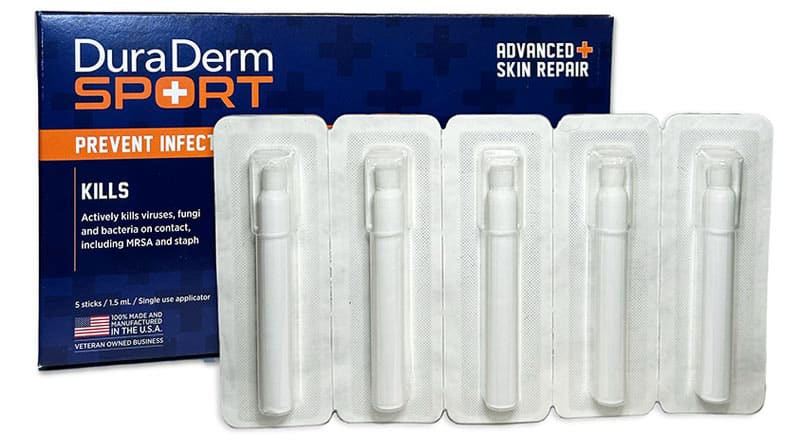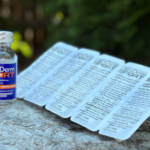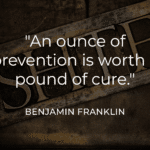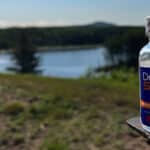
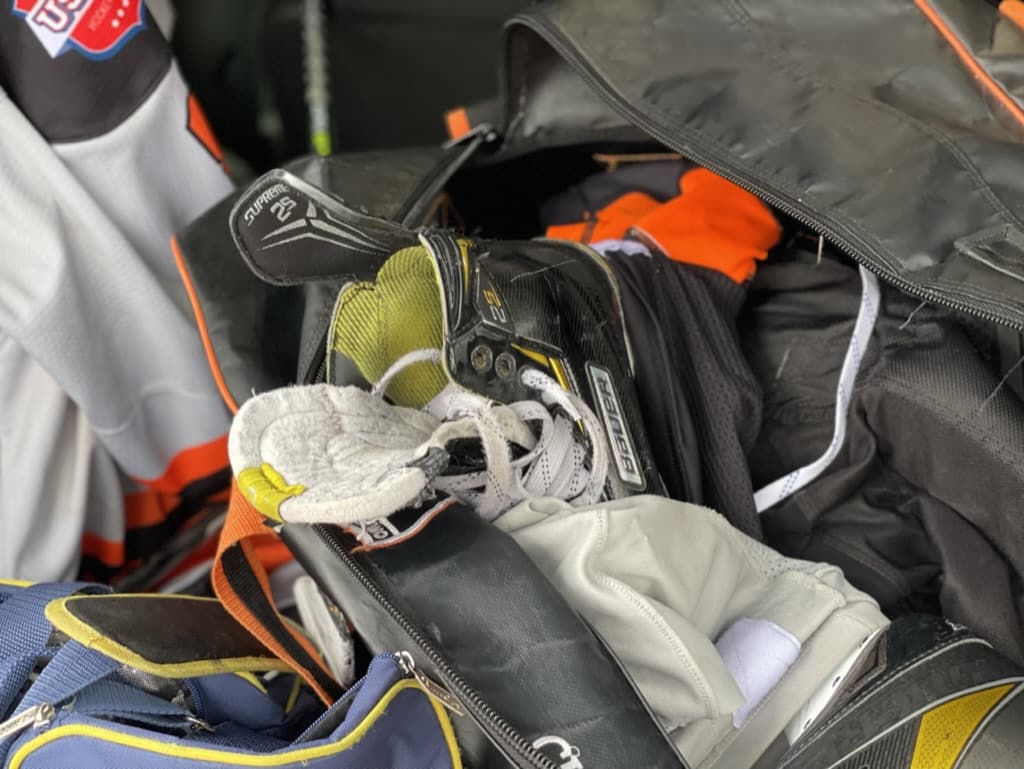
WHY DO YOU NEED TO WASH SPORTS EQUIPMENT?
If you’re a parent of athletes like mine, it seems as if they see the dreaded (and gross!) equipment smell as a right of passage. I know this to be true for my hockey and lacrosse players and even my little mite who emulates everything! All kidding aside, there are many important reasons to thoroughly clean ALL of your sports uniforms and equipment after every use. Sports gear is a breeding ground not just for odors but for bacteria, fungi and viruses.
According to USA Hockey, “In the average set of hockey equipment there’s over a million living organisms, any one of which can cause you serious harm.”
- To get rid of the smell. It is not perspiration that is causing that smell on your sports equipment; that foul-smelling odor is from bromhidrosis. Bromhidrosis is when sweat encounters bacteria on the skin and the smell of BO emerges. If left untreated (the sweat remains on sports gear) it continues to produce the BO byproduct, and the equipment continues to smell.
- To remove bacteria and prevent infection. It’s not just the disgusting odor, the sweat-filled pads, clothing, gloves, etc., are a prime breading ground for bacteria, mold and fungus. Many diseases can spread from untreated sports gear, including staph and MRSA. For this reason, pay extra attention to equipment that has direct contact with the skin. If your child happens to have a skin abrasion or cut that comes in contact with the sports gear, the bacteria can enter the bloodstream and cause a potentially severe infection.
- To protect your sports gear. Let’s face it, equipment is expensive. Cleaning sports gear regularly will keep make your equipment last much longer, and if you have younger kids or someone to pass it along to they will be able to enjoy it too.
Washing sports clothes and uniforms
Although some of your other clothes (your favorite jeans) can be worn a few times in between washes, your sports clothes and uniforms are not items that can skip a cleaning. Stretchy, synthetic fibers like nylon, Lycra, polyester, and spandex generally are used in activewear, which is great for movement and sweat-wicking, but these materials are also excellent at holding onto smells.
- More detergent doesn’t mean cleaner clothes. Using too much detergent and laundry boosters, like fabric softener, can create a build-up that will absorb more odor.
- Wash sports clothes inside out in cold water with sports-specific detergents like HEX or Nathan Power Wash. You can also use your regular favorite detergent and toss in a quarter or half cup of vinegar or baking soda for the particularly pungent loads.
- Skip the fabric softener (liquid and dryer sheets), which can hamper your activewear’s ability, specifically those moisture-wicking clothing, to perform. There are products from NikWax called BaseWash, which you add as a booster to your regular detergent or use Hex Fabric Conditioner which is made explicitly for activewear.
- Throw a cup of white vinegar in with a half-dose of laundry detergent to eliminate odors and wash away build-up.
- Be sure to air dry or use low heat when using a dryer, this way or your activewear and uniforms will maintain their elasticity.
For more tips, check out this article from The New York Times to thoroughly disinfect and sanitize sports clothes.
Washing Pads and Gear
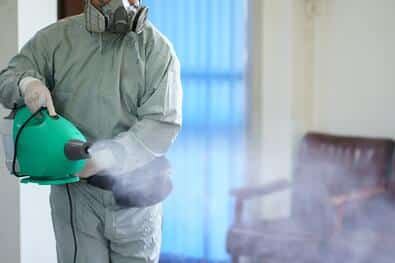 Although you may want to hire a fumigation service to clean and deodorize your gear, there are some quick and easy ways to maintain clean and odorless equipment. Remember, it is much easier to be proactive—spray and dry gear regularly after every use. Of course everything will need a deep clean periodically, but hopefully these tips will help keep you ahead of the game.
Although you may want to hire a fumigation service to clean and deodorize your gear, there are some quick and easy ways to maintain clean and odorless equipment. Remember, it is much easier to be proactive—spray and dry gear regularly after every use. Of course everything will need a deep clean periodically, but hopefully these tips will help keep you ahead of the game.
- Spray gear with Clear Gear or a similar product on the EPA’s Disinfectants for Use Against SARS-CoV-2 (COVID-19) list.
- Hang all gear out to air dry. NEVER leave gear in your sports bag.
- Pads, such as elbow pads, shin pads, jerseys, regular gloves, neck guard, pants, chest protectors and bags can be washed in the washing machine using the detergent guidelines above. If you have a top-loading machine with an agitator, it’s best to hand wash the pants and chest protector as these can get snagged on the agitator. Hockey pads, goalie gloves, and goalie blockers should NOT be washed in the washing machine. Check labels when possible, or ask at your local sports shop about specific gear if you’re not sure. Use gentle settings on top load washers, as the mixer may nick or damage equipment. Set the washer for a large load, pre-wash, and heavy soil level.
- If you have a goalie in the family and cannot wash their goalie pads, blockers, and gloves, you can still do a little maintenance. Using a microfiber cloth, wipe them down with a little bit of warm water and dry completely with another cloth. For scuff marks or puck marks, a Mr. Clean magic eraser is your best friend. You can also treat Pads, gloves, and blockers with a water-proofing agent for more extended wear.
- Do not machine dry sports equipment as it can lead to warping and malfunction. Instead, hang dry or place on a rack and use a fan to circulate airflow.
- Helmets: wipe down and regularly spray, paying close attention to chin guards. To deep clean, fill a bathtub with warm water and baby shampoo and use a sponge or toothbrush to scrub nooks and crannies.
- Skates, cleats, and shoes: Loosen laces and pull the tongue forward to better air out the inside of the skate or shoe. Spray and air dry immediately after use. If insoles are removable, these can be machine washed and periodically replaced as needed.
Check out the YouTube tutorial on “How To Clean Hockey Equipment” that I have found helpful.
Recent Posts
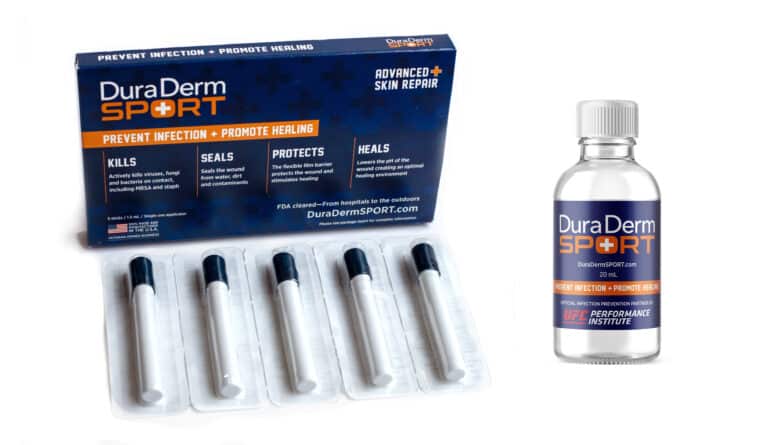
DuraDerm SPORT Duo
Now Available!

DuraDerm® SPORT is a product of Prevent-Plus, LLC © 2024 Prevent-Plus, LLC. All rights reserved.
DuraDerm® SPORT is a FDA cleared Class I medical device. DuraDerm® SPORT is a non-antibiotic, microbicidal liquid polymer that forms a protective film barrier over the skin. WARNING: For use on minor wounds, cuts, abrasions, burns and scrapes that are clean and dry. Not for use on deep, infected, or puncture wounds. Do not use near eyes or mouth.

